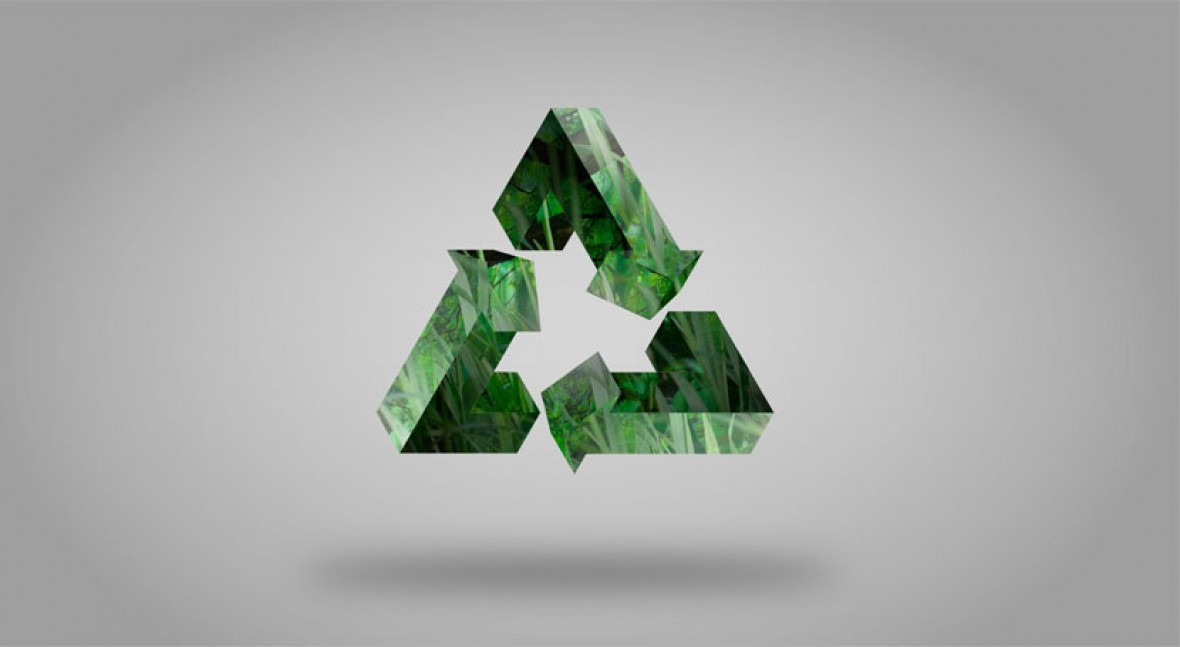Before us lies a great opportunity — for the economy, for the health of our cities and businesses, and much more.
While the innovations of the Industrial Revolution introduced many of the practices that we now know contribute to climate change, the innovations of the digital revolution are delivering the solutions needed to create a more sustainable world. Dependence on finite resources created the problem; digitization and data are providing the answer. We are truly living in a world of data.
The digital revolution helps answering several of the major sustainability challenges, dispelling some of the lingering myths regarding sustainability and business growth.
The innovations of the digital revolution are delivering the solutions needed to create a more sustainable world
Myth #1: Business growth must come at an environmental cost
Economic growth can be decoupled from environmental impact. This requires the adoption of business models based on a circular economy, which goes beyond the traditional 3 R’s (reduce, recycle, reuse) to embrace a 5 R approach: repair, reuse, refurbish, remanufacture, and recycle. Businesses based on a circular economy model open up new avenues for increased efficiency and growth. A prime example is European auto manufacturer Renault, whose remanufactured parts now include injection pumps, gearboxes, injectors, and turbo compressors. These parts are 30%-50% less expensive than newly manufactured parts, the facility sends no material to landfills, and the process uses far less resources compared to new production: 80% less energy, 88% less water, 92% less chemical products.[1] In a circular economy model, what was once thought of as waste is now thought of as simply more raw material.
Digitization makes a circular economy model achievable for many businesses through better connection and communication with customers. With this comes an unprecedented, end-to-end traceability of product from raw materials through to recycling. Digitization also empowers the data-driven optimization of manufacturing processes, where real-time feedback and alerts help reduce waste, cut costs, and gain efficiencies. Improved efficiency also comes from extended usage cycles made possible by the connected monitoring systems powered by IIoT technology. Additionally, digitization refuels the development of innovative new services, retrofitting offers, take-back programs, and beyond.
Myth #2: Sustainability data is still too costly and time-consuming to manage
Any company can now turn to technology for help in sustainability tracking, disclosure, and reporting. Digital solutions can now transform seemingly endless amounts of data into meaningful, digestible information to drive corporate sustainability initiatives. However, according to a recent Schneider Electric study, 80 percent of companies are collecting data, though only 55 percent say they have the connected devices and software required to collect on energy and carbon savings opportunities efficiently. In manufacturing, the new generation of enterprise software is more sophisticated, and connected devices such as sensors are simpler, smaller and, at the same time, more intelligent. In the cloud, analytics and machine learning work in tandem to reduce CO2 footprints — from company-wide operations down to individual processes.
Schneider Electric’s sustainability team worked with Whirlpool to define key data streams and deploy an energy and sustainability management platform, EcoStruxure™ Resource Advisor, to track and evaluate performance across the company’s facilities worldwide. Whirlpool can now turn its sustainability efforts into tangible business value. For example, by understanding they had 20 million pounds of corrugated cardboard waste in their Ohio plants alone, they anticipate saving more than $1 million over the next three years — just in one state within one region.
With the implementation of smart, connected technology, businesses can not only gather and manage sustainability data efficiently — sustainability itself can be actively and dramatically improved.
Myth #3: Sustainability is good for reputation but not for business growth
Sustainability has always been an investment. But today that investment is just as much in the future of businesses as it is in the future of the planet. This is because the technologies that make a company more sustainable are the same that make a company more efficient in operations, more productive, safer, and more resilient.
According to a recently released Schneider Electric report, decision makers began to see noticeable rates of return within just 12 months of implementing new technology. Of those surveyed, 75% expected to have the ability to intelligently connect people, processes, and data through devices and sensors within one year.[2]
Is corporate sustainability about reputation? Absolutely. But the stakes are now much higher. It’s about relationships and responsibility with customers, suppliers, shareholders, investors, civil society, employees, and the world. When it comes to corporate sustainability, the solutions are ready and waiting. We have the tools and now we must do the work to capitalize on the opportunities before us — to create more than a healthy sustainable world, but also robust, connected economies and thriving, resilient businesses prepared for the future.






